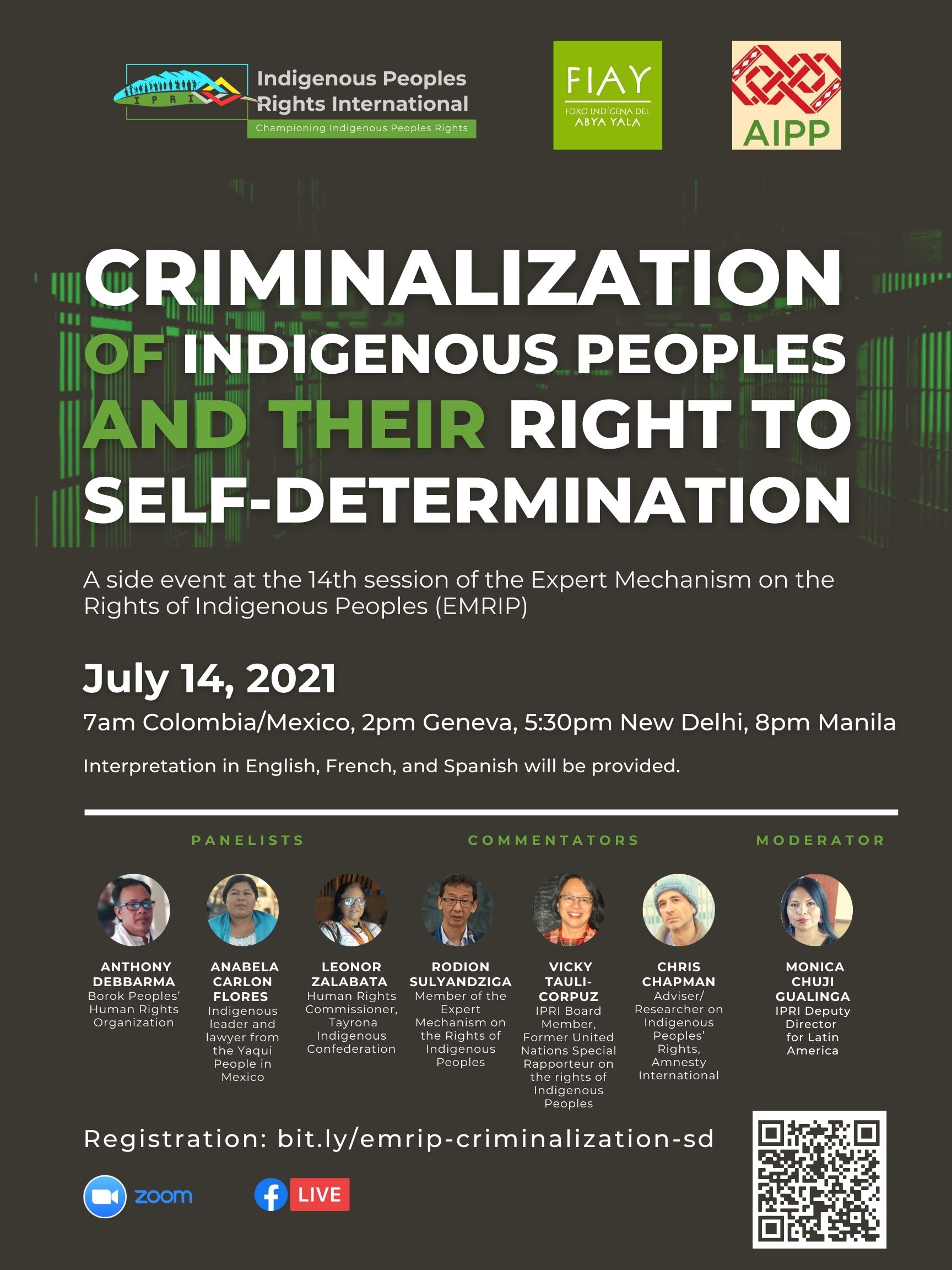
Event Details
July 14, 2021
Background
The Indigenous Peoples Rights International (IPRI) is organizing the side event “Criminalization of Indigenous Peoples and their right to Self-Determination”. The side-event will take place during the 14th session of the Expert Mechanism on the Rights of Indigenous Peoples (EMRIP).
This year’s EMRIP Session will address the efforts to implement the United Nations Declaration on the Rights of Indigenous Peoples: Indigenous Peoples and the Right to Self-Determination.
Throughout the world, there is a growing trend in the criminalization of indigenous peoples and the impunity in the crimes committed against them. These cases are mostly related to indigenous peoples defense of their collective rights to Self-Determination and to lands, territories and resources.
Criminalization, understood as the misuse of criminal laws that involves the manipulation of the punitive power of the State and non-state actors in order to control, punish and/or prevent the exercise of the right to defend human rights, has direct negative, and often times, irreparable impacts in the exercise of the collective rights of indigenous peoples.
The side-event will address the situation of criminalization of indigenous peoples in Mexico, Colombia and India in their defense and struggle for the right to self-determination and the protection of their lands, territories and resources.
It will also provide the opportunity to present recommendations in the context of the implementation of the right to self-determination, as well as building support and solidarity for indigenous peoples.
Program
Welcome and Moderator
Monica Chuji Gualinga – IPRI Deputy Director for Latin America. Kichwa from the Ecuadorian Amazon and member of the Sarayaku community of Sucumbios. As Constituent Assemblywoman of Ecuador, she promoted the Constitutional recognition of the Human Right to Water, the Right to Free, Prior and Informed Consultation of Indigenous Peoples, the Plurinational nature of the State and Indigenous Justice. Former Vice President of the Confederation of Indigenous Nationalities of the Ecuadorian Amazon.
Panelists
- Anabela Carlon Flores (México) – Indigenous leader from the Yaqui People in Mexico. Anabela is an indigenous lawyer who works in the protection of the Yaqui territory. She is trainer of indigenous peoples that works in strengthening indigenous knowledge and in the protection of the territory.
- Leonor Zalabata (Colombia) – Leader and Activist from the Arhuaco People in Sierra Nevada de Santa Marta, Colombia. She is the Human Rights Commissioner of the Tayrona Indigenous Confederation and representative of the National Commission of the Indigenous Peoples of Colombia. Member of the delegation of the National Working Group for Indigenous Peoples Rights of the Constituent Assembly of 1991. Recipient of several awards including the Anna Lindh Prize for campaigning for the rights of indigenous people.
- Representative from India (TBC)
Commentators
- Rodion Sulyandziga – Member of the Expert Mechanism on the Rights of Indigenous Peoples.
- Vicky Tauli-Corpuz – Former UN Special Rapporteur on the Rights of Indigenous Peoples.

